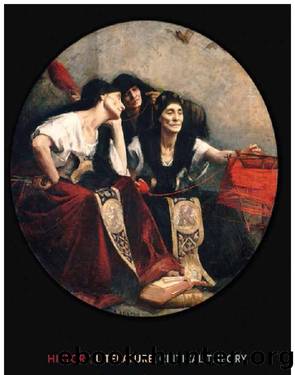History, Literature, Critical Theory by LaCapra Dominick;

Author:LaCapra, Dominick;
Language: eng
Format: epub
ISBN: 978-0-8014-6776-9
Publisher: Lightning Source Inc. (Tier 3)
Published: 2012-12-26T16:00:00+00:00
Epilogue
Recent Figurations of Trauma and Violence: Tarrying with Žižek
Slavoj Žižek has arguably been the most influential as well as the most controversial theorist of the recent past, beginning at least in 1989 with Verso’s publication of his first well-known book The Sublime Object of Ideology, which was followed by a profusion of publications that have continued unabated to the present. His work is avidly read by a significant group not restricted to scholars, and the rate at which Žižek publishes requires sincere devotion or at least voracious curiosity on the part of his readers. Žižek has indeed become a cultural phenomenon. Even his wedding some years ago to a young Argentine supermodel was followed in the local press with the type of attention usually devoted to a film or rock star. And Žižek’s live performances may vie with those of famous entertainers. Indeed, one of the appeals of his writings as well as his live performances is his ability to shock. But under the ostentatious display and the shock effect is also a level of seriousness, including advocacy of violence and a rather disabused if not cynical view of any nonviolent mode of social change in a world in which he believes all protest as well as all worthwhile intellectual activity is immediately co-opted and recycled as self-advertising pulp fiction by the powers that be. In this analysis, I take Žižek seriously and often at his word, even while recognizing the role of the parodic and self-parodic in his oral and occasionally in his written “performances.” A moot issue is the extent to which Žižek transferentially repeats the appeals to violence in movements such as fascism that he explicitly criticizes, opening himself (as he realizes) to the charge of being a “left fascist.” Whatever one may make of this charge, Žižek’s sympathy for violence on the left is explicit and at times insistent.
Violence typically traumatizes, unless there is some “mechanism” whereby one is hardened to the experience or able to transfigure it into the sacred or the sublime. Here a crucial issue is whether one is indeed traumatized by an experience that is typically traumatizing for the perpetrator as well as the victim. The “trick” of something like Nazi ideology or even of militaristic ideology in general is that it may harden the self through a kind of preemptive or homeopathic numbness that (if it works) averts overt traumatization or at least breakdown of the perpetrator.
In inquiring into trauma, violence, and their transfigurations, one may distinguish between the historical and the transhistorical as well as question the tendency to collapse the historical into the transhistorical, if not the transcendental, rather than to explore critically their complex articulations. (The problem posed here is that of relations among the historical, the transhistorical, and the transcendental.) At times an ideology, fetishistic narrative, or even a seemingly critical theory can perform the transfiguration of trauma as well as convert the historical into the transhistorical or even the transcendental. This may of course happen in
Download
This site does not store any files on its server. We only index and link to content provided by other sites. Please contact the content providers to delete copyright contents if any and email us, we'll remove relevant links or contents immediately.
| Books & Reading | Comparative Literature |
| Criticism & Theory | Genres & Styles |
| Movements & Periods | Reference |
| Regional & Cultural | Women Authors |
4 3 2 1: A Novel by Paul Auster(11050)
The handmaid's tale by Margaret Atwood(6852)
Giovanni's Room by James Baldwin(5878)
Big Magic: Creative Living Beyond Fear by Elizabeth Gilbert(4723)
Asking the Right Questions: A Guide to Critical Thinking by M. Neil Browne & Stuart M. Keeley(4576)
On Writing A Memoir of the Craft by Stephen King(4213)
Ego Is the Enemy by Ryan Holiday(3991)
Ken Follett - World without end by Ken Follett(3972)
The Body: A Guide for Occupants by Bill Bryson(3802)
Bluets by Maggie Nelson(3711)
Adulting by Kelly Williams Brown(3671)
Guilty Pleasures by Laurell K Hamilton(3586)
Eat That Frog! by Brian Tracy(3514)
White Noise - A Novel by Don DeLillo(3436)
The Poetry of Pablo Neruda by Pablo Neruda(3367)
Alive: The Story of the Andes Survivors by Piers Paul Read(3311)
The Bookshop by Penelope Fitzgerald(3226)
The Book of Joy by Dalai Lama(3218)
Fingerprints of the Gods by Graham Hancock(3213)
